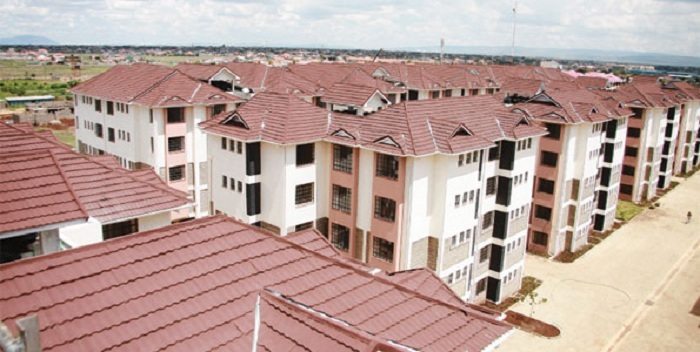BY Dr. Akintade Afolayan
The Covid-19 pandemic is a global disaster. It puts to test the resilience potentials of nations. The ensuing lockdown brings to the fore the strength of advancement and governing of nations. The administration of its curtailment holds out nations at the varying levels of development. While it was given serious attention and rigorous pursuit in some of the developed nations of the world, it exposed the usually jumbled approach to urban governance in many cities in Nigeria and, perhaps, many nations in the global south. If the importance of any infrastructure in Nigeria and especially her cities is accentuated in this process, it is that of housing and its nexus with health.
The lockdown as a response to the pandemic, if only in principle, restricts most human activities to within the confines of the house. Naturally, the house delineates environmental space into the external which is quite susceptible to exposure to the pandemic, and the internal, offering protection from the elements. For a while, the transformation of house to a home becomes glaring. The house is but, a structure which defines and delimits space for the occupation of the household. It becomes a home only when cultural, socio-economic and psychological dimensions of household’s (human) interactions are involved (Lawrence, 1987; van der Sar, 2015). As such, researchers in housing environment are now faced with multiple foci in the realms of housing poverty and adequacy. The various indicators of housing in the environment stare everyone in the eye for effective enquiry. What, for instance, is the level of crowding in the house? How had the initial design of the house conformed to lighting (especially natural day-lightning in absence of electric power) and ventilation requirements among other things? And what are the lessons in this regard for the future? The pressure on housing would not have been felt this much earlier in the face of staggered occupation, as not all occupants would be around at the same time. The lockdown puts housing adequacy to test, also in terms of water supply, noise level as well as quality of indoor air and/or physical ambience.
The achievement of the essence of the lockdown and the need for social distancing would be much affected not only by family size but also the structure of the family. The lockdown also gives us the opportunity to see the challenge of homelessness and neighbourhood quality. No doubt, response to housing management services including refuse evacuation would pose a challenge to match with the rate of generation. Housing location and spatial reference to shopping centres or the emergent food markets could become a further issue in tackling Covid-19 pandemic. Enquiry could also arise on how the aged, invalid and other classes of vulnerable people are housed at this moment of lockdown.
The appreciation of strategic importance of housing and household data in reaching out, and distribution of palliatives to the locked down users cannot be overemphasised. What, for instance, is the volume of housing stock, housing flows, and housing need in the city? How about the number of users? Take Lagos for example, the Lagos state Residents Registration Agency has about four million people on its database. Planning for palliative distribution and other interventions based on this this number is problematic, when official population for the city is over 20million.
Another related issue, perhaps neglected now, is that of the level of general and housing education in the society. At the extremes of the general education continuum are the stark illiterates and the super-educated elites. While the high-end personalities injected ‘superior knowledge’ of 5G telephony and internet gymnastics into it, most of those at the low-end did not believe in the pandemic and see the lockdown as only a punishment especially when most of them in the informal sector live on daily wages. For others, the stay-at-home instruction of the government is alarmist. A relative of mine actually asked “…se o le to yen ni? (is it that serious?) depicting ignorance of contemporary danger in unrestricted human interaction. At housing education level, how informed are users about space relationship, user interaction and cleanliness vis a vis availability of water, power and similar support infrastructure in tackling the Covid-19 menace? What danger, for instance, can be posed by indiscriminate use of common services including door handles, toilet seats and bathroom fittings, especially in multi-tenanted tenement houses?
Housing inequality, poverty and homelessness, among other things, had aided roving street urchins in parts of Lagos (e.g. Aguda, Surulere ) and Ogun State (e.g. Ifo, Ado-Odo/Ota areas) to unleash mayhem on residents observing the stay-at-home order, thus undermining efforts at the immobilisation of Covid-19 virus. Unfortunately, too, the overall level of compliance with the stay-at-home order could not have passed the necessary litmus test in many other urban centres in Nigeria. Even with Presidential lockdown order on Lagos, Ogun and Federal Capital Territory (FCT), compliance had been willfully haphazard for problems of dynamics in logistics and monitoring efficiency. Reports from Ado Ekiti, Ilorin and Ibadan had not been more encouraging.
The nexus between housing and health cannot be more glaring than it is now in Nigerian cities and towns. Epidemiological findings, according to Bonnefoy (2007), universally suggest strong associations between housing conditions and health effects. Thus, housing is fundamental to addressing the challenges of COVID-19 and indeed other issues of urban life (WHO, 2018). Inadequate housing would definitely slow down swift containment of the Covid-19. Therefore, researchers and indeed the various actors in the housing value chain need to forge ahead with enquiry into how housing could not only be adequate but also be qualitative.
Dr Akintade Afolayan is a Senior Lecturer in the Department of Estate Management, University of Lagos. He is a member of the Land Management and Administration and African Urbanisation Dynamics research cluster.




